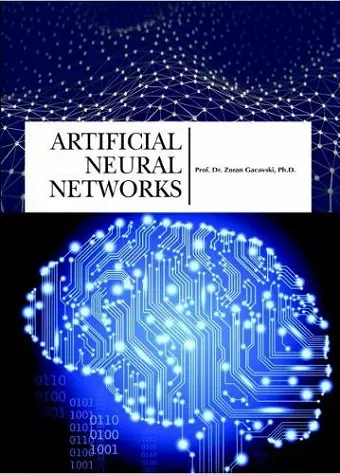Artificial Neural Networks
Format:Hardback
Publisher:Arcler Education Inc
Published:30th Nov '16
Should be back in stock very soon

Artificial neural networks are graphical structures whose initial purpose was to emulate the human brain. They were introduced in 1943 by McCulloch and Pits and, since then, they have evolved in a very powerful computational tool. In 1958 Rosenblatt introduced the perceptron – a two-layered learning network based on simple math rules. The structure of an artificial neural network consists of an input layer, an output layer and of one or more hidden layers. The nodes in the network represent the neurons, while the links represent synapses. All links are weighted and these weights are adaptable, as they can be adjusted according to a learning algorithm. The usage of artificial neural networks today is inevitable in areas such as machine learning, data mining, pattern recognition, and automation control. Typical applications include: image and voice recognition, fraud detection, biometric user authentication (e.g. fingerprint and eye retina recognition), and complex control algorithms (e.g. aircraft motion control). This edition contains relevant, state-of-the-art research on artificial neural networks, categorized in four sections.
Section 1 focuses on Biological neural networks, describing: spike activity prediction based on multi-neuron spike train data, neuromorphic persistent firing networks, code spectrum and code flow of cultured neural networks, and brain network construction method for exploring age-related functional reorganization.
Section 2 focuses on the application of artificial neural networks in forecasting and prediction, describing: sales forecasting based on ARIMA, airborne pollution forecasting by neuro-fuzzy algorithms, forecasting revenue by using a case study involving a national insurance company from Iraq, financial time series prediction, and health assessment of multi-store shear buildings.
Section 3 focuses on Learning neural networks, describing: human detection by neural network image processing, camera image formation using a feedforward neural network, medical image fusion based on pulse coupled neural networks, artificial neural networks for intrusion detection, recognition of Arabic sign language, heart disease diagnosis utilizing hybrid fuzzy wavelet neural network, and hybrid neural network architecture for online learning.
Section 4 focuses on the application of artificial neural networks in modeling and control applications, describing: course control of under-actuated ship based on nonlinear robust neural network, water quality modeling in reservoirs, time-series modeling of river flow, and modeling and control of an AGV.
ISBN: 9781680944594
Dimensions: unknown
Weight: unknown
224 pages